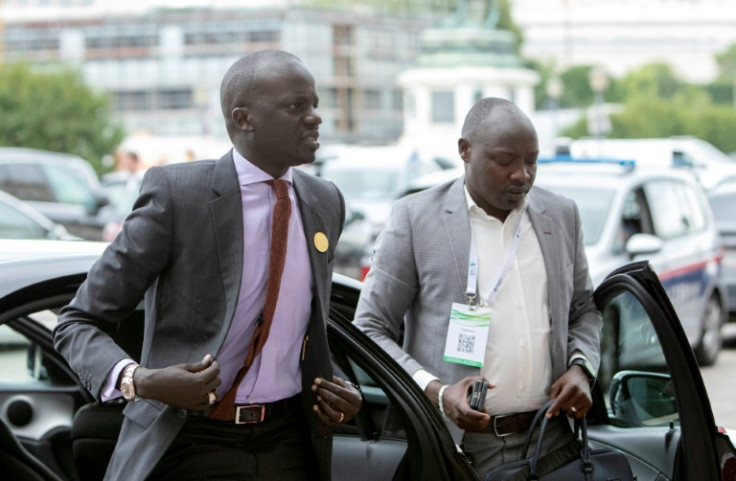
South Sudan could resume oil production "as early as tomorrow" almost a year after fighting in neighbouring Sudan ruptured a key pipeline, the government said Tuesday.
The landlocked and impoverished country's vital oil had been shipped to global markets from Port Sudan on the Red Sea, with Sudan taking a cut as a transit fee.
But the pipeline was damaged in February clashes between Sudan's army and the paramilitary Rapid Support Forces, dramatically denting the young nation's economy.
After months of shutdown, South Sudan's government said production would resume from part of a facility operated by Dar Petroleum Operating Company (DPOC).
"The Ministry of Petroleum and partners would like to declare that the kick-off date for DPOC resumption is as early as tomorrow," Minister of Petroleum Puot Kang Chol said at a press briefing in capital Juba.
He said the ministry was "directing DPOC... to immediately embark on the resumption without any delay".
AFP was unable to independently verify if production would restart on January 8.
South Sudan, home to roughly 12 million people, took over about three-quarters of the oil reserves from Sudan when it achieved independence in 2011.
Despite its oil riches, the world's youngest nation has struggled to find its footing, battling ethnic violence, chronic instability, poverty and natural disasters.
"We know that our economy is suffering," said Chol.
"We believe with tomorrow's resumption, that resources will be back to the table."
However, he underscored it would be a gradual process with a target of 90,000 barrels a day initially.
"This is what the pipeline will accommodate in the first phase. And then thereafter, if we have the capacity to increase more than that, we shall do so," Chol said.
Prior to the rupture, it produced more than 150,000 barrels of crude per day, according to bp's Statistical Review of World Energy.
Chol did not give a further timeline as to scaling up production.
The resumption of oil production is expected to provide a much-needed boost to South Sudan's beleaguered economy.
The country is currently grappling with a growing cholera outbreak in the north, where many of those fleeing violence in Sudan end up.







